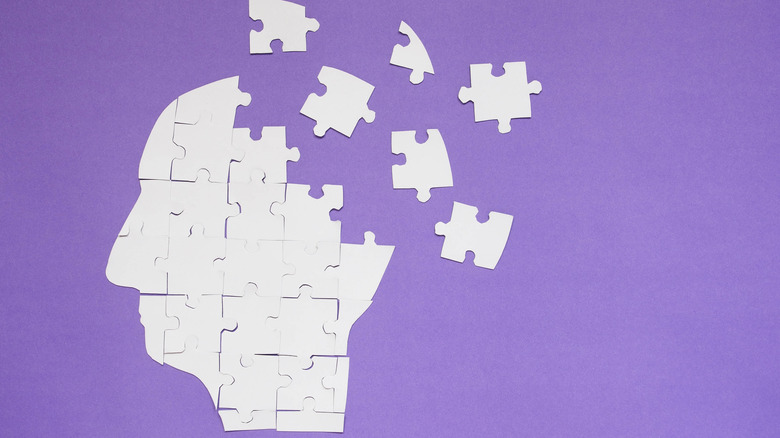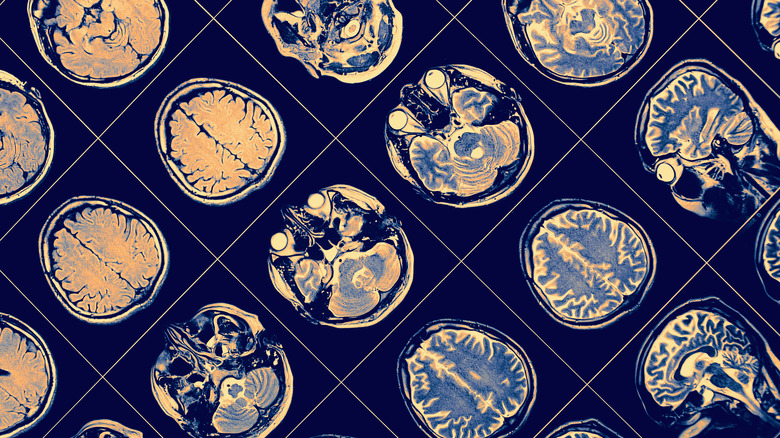What Is The Real Connection Between Dopamine And Parkinson's Disease?
Of all the chemicals in the brain, dopamine is one of the most important. As a neurotransmitter, it transmits information between nerve cells in the brain (via Health Direct) and is often referred to as the "happy hormone." But the dopamine is also extremely important when it comes to other bodily functions, as Web MD notes, like movement, sleep, attention, and even pain processing.
Like many other chemicals in the brain, an imbalance of dopamine can be a major factor into developing mental health issues — especially depression and schizophrenia, according to Very Well Mind. Low levels of dopamine have also been associated with other conditions linked to the brain, including Parkinson's disease.
While scientists have yet to find an exact cause of the condition, the symptoms of Parkinson's disease seem to have a distinct link to a drop in dopamine. This is because the condition causes nerve cells in the brain to die, per the National Institute of Aging, which directly affects the production of dopamine.
More research needs to be done to find a cure for Parkinson's disease
But even though this lack of dopamine has a link to the symptoms of Parkinson's disease, this knowledge doesn't help in finding a cure for the condition. As Dr. Echo Tan, a neurologist in the Cedars-Sinai Movement Disorders Program explained on the Cedars Sinai blog, even though "the longtime notion is that it's dopamine" has a direct affect on developing symptoms of Parkinson's, "it's a lot more complicated than that." Tan adds that "without finding the real reason behind Parkinson's, we can't find a cure."
Sure, there seems to be an obvious link between the decrease of dopamine and symptoms of the condition developing. But researchers are "looking for where Parkinson's really starts," as Tan explained, and what exactly causes dopamine to deteriorate in the first place. "We want to find the first changes, because that may lead to more information about what is affected at the start of the disease," the neurologist concluded.

